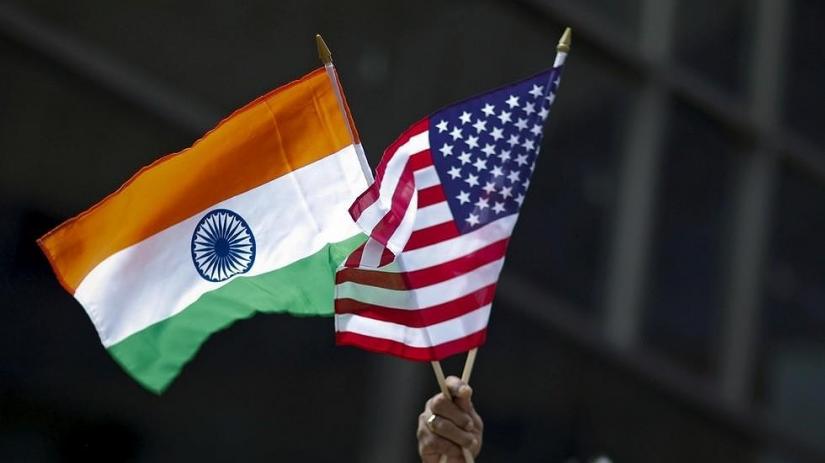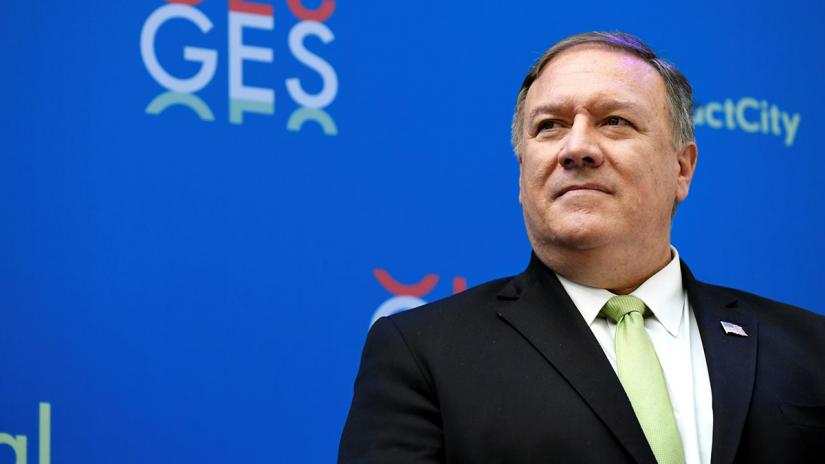 It seems counter tariff increases on American products imported by smaller economies can hurt US agriculture, if recent developments are any indication.
It seems counter tariff increases on American products imported by smaller economies can hurt US agriculture, if recent developments are any indication.
Only days ago, India announced a retaliatory hike in customs duties on 28 US-made products and items, including apples, almonds, pulses and walnuts.
Earlier India had postponed its move eight times since last year, hoping to work out high-level trade talks with the US. The opening salvo in what is turning out to be a trade dispute between Delhi and Washington had been fired by the latter.
President Donald Trump, aggressively implementing his ‘America first’ policy, had ordered higher tariff to be imposed on imports from India, targeting the steel and aluminium sectors.
As with China, Trump was upset with the negative balance of trade between India and the US. He pressured India to reduce its duties on the import of US-made goods, during one-on-one talks with Indian Prime Minister Narendra Modi.
Trump is known to adopt what is described as a ‘maximum pressure’ approach in such matters to secure his objectives vis-à-vis other countries.
India responded by reducing 50 percent of the duty on US-made bikes, but Trump was not done. Even that was “too much”, he said and wanted the duty to be withdrawn altogether.
Embarrassingly for the Indian political establishment, the US president’s unorthodox ball-by-ball running commentary on the social media about the Indo-US negotiations made things difficult for Delhi.
Modi’s political opponents as well as a section of Indians were upset with Trump’s hectoring ways.
The US made it clear it expected India to announce more tariff cuts. It promised to target other sectors of Indian exports to the US.
Trump also removed India from the favoured GSP treatment for allowing imports from countries perceived to be less developed than the US. The move spelt deep concern among Indian exporters, already under much pressure owing to the sluggish world economic trends prevailing currently. Now, there has occurred a sharp reaction among American farmers following India’s announcement to increase customs duties on fruits etc. Congressman Josh Harder has reportedly asked Secretary of State Mike Pompeo to take up the higher tariff slapped on almonds immediately with Prime Minister Modi.
Now, there has occurred a sharp reaction among American farmers following India’s announcement to increase customs duties on fruits etc. Congressman Josh Harder has reportedly asked Secretary of State Mike Pompeo to take up the higher tariff slapped on almonds immediately with Prime Minister Modi.
Pompeo, who landed New Delhi late on Tuesday for a visit that ends on Thursday, will kick off his visit calling on Modi on Wednesday.
Harder earlier noted in a letter to Pompeo that California farmers — many of whom his constituents—exported $650 million worth of almonds to India annually, their largest consignment sold overseas.
The higher Indian prices would hit them hard. The US authorities in addition to discussing the issue with India should also help the American farmers more effectively, he said.
The total possible damage to the US farm sector as a result of India’s increased tariff was being worked out by US economists.
In 2018, under the GSP facility, India was exempted from US customs duty for $6 billion worth of goods. Its total US exports amounted to $54 billion.
On the other hand, the US sold $33 billion worth of goods to India, raising Trump’s hackles.
It is not as though India has not been responding to Trump’s ultimatum to ‘Buy American more, or else’ in recent years. US trade deficit with India has dropped to $21.3 billion in 2018, lower than $22.9 billion in 2017 and $24.4 billion in 2016.
Not content, the US has also urged upon India not to install the sophisticated S -400 anti missile defence system from Russia, reportedly the best in the business.
Already several countries including present and former US allies like Turkey, Iran, Syria and China have placed orders, while a few more are in the queue weighing their options. Turkey has told the US it will not change its mind. So far, India had not buckled under Washington’s pressure tactics.
Domestic political opinion in India gradually has been hardening against accommodating the US further. The Modi-led Indian administration is being perceived even by neutral political analysts as being ‘over friendly.’
Within the Shanghai Cooperation Organisation (SCO), India’s relatively conciliatory approach towards the US contrasts with the comparatively stronger stance on such matters by China and Russia, the two main pillars of the regional grouping.
For the time being, Indian analysts are happy with the instant alarm signals from the US farmers’ lobby over Delhi’s retaliatory moves — for starters.
 Business
Business
41379 hour(s) 39 minute(s) ago ;
Evening 10:34 ; Sunday ; Jul 06, 2025
US-India trade war: Delhi’s retaliatory tariff hit American farmers hard
Send
Ashis Biswas, Kolkata
Published : 01:30, Jun 26, 2019 | Updated : 08:11, Jun 26, 2019
Published : 01:30, Jun 26, 2019 | Updated : 08:11, Jun 26, 2019
0 ...0 ...
/zmi/
Topics: Top StoriesExclusive
- KOICA donates medical supplies to BSMMU
- 5 more flights to take back British nationals to London
- Covid19: Rajarbagh, Mohammadpur worst affected
- Momen joins UN solidarity song over COVID-19 combat
- Covid-19: OIC to hold special meeting
- WFP begins food distribution in Cox’s Bazar
- WFP begins food distribution in Cox’s Bazar
- 290 return home to Australia
- Third charter flight for US citizens to return home
- Dhaka proposes to postpone D8 Summit
Unauthorized use of news, image, information, etc published by Bangla Tribune is punishable by copyright law. Appropriate legal steps will be taken by the management against any person or body that infringes those laws.
Bangla Tribune is one of the most revered online newspapers in Bangladesh, due to its reputation of neutral coverage and incisive analysis.
F R Tower, 8/C Panthapath, Shukrabad, Dhaka-1207 | Phone: 58151324; 58151326, Fax: 58151329 | Mob: 01730794527, 01730794528






